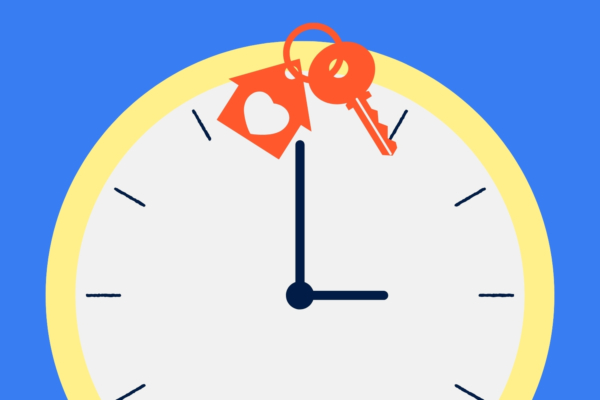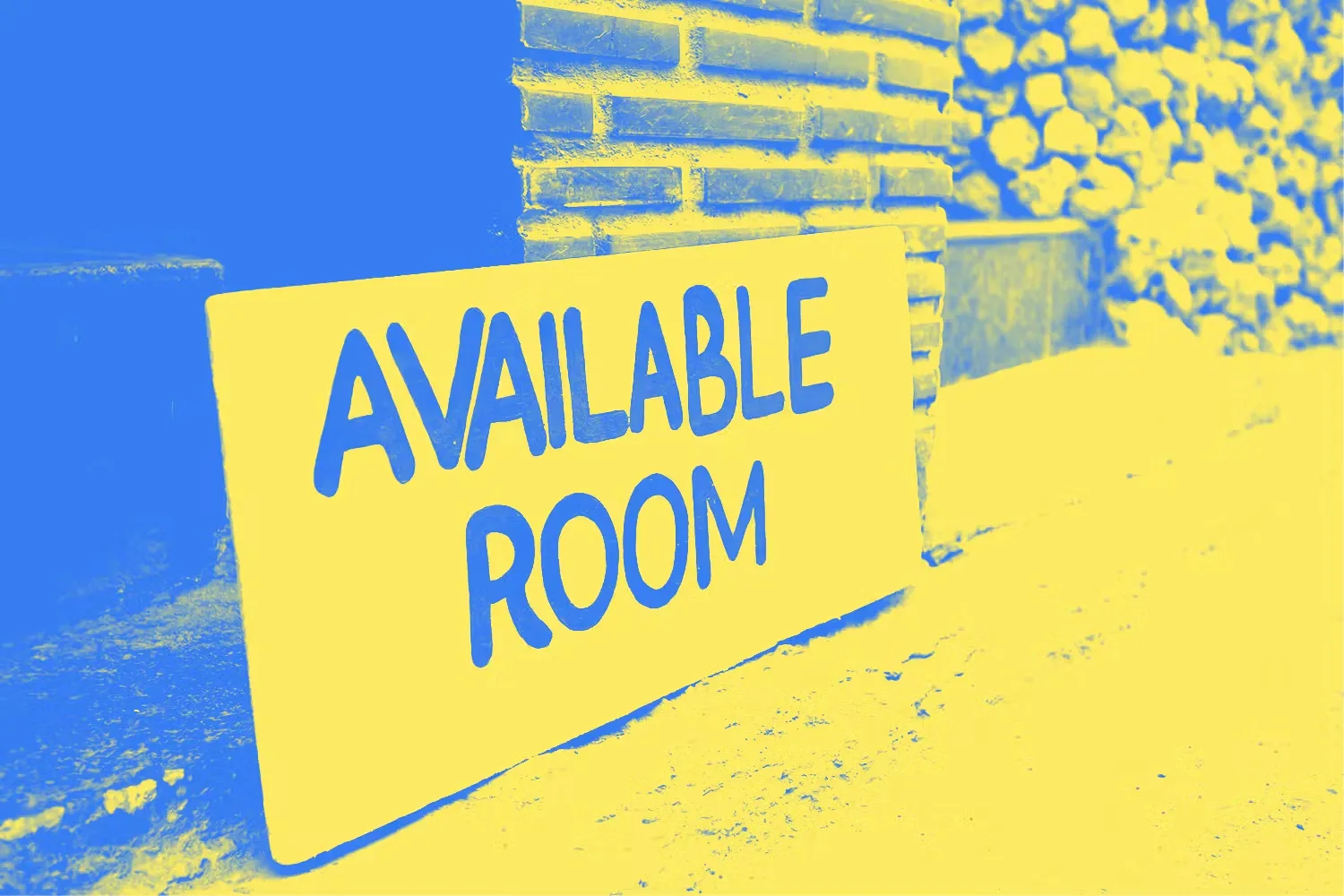
Guide to Homebuying: House Hacking

With housing costs rising in the Austin area, everyone seems to have the same question: how do I afford this?
Even if you’re wealthy, a mortgage payment is most likely in your future. So rather than paying your entire mortgage by yourself, what if there was a way to have someone else chip in for your housing costs?
House hacking is the newest way to explain a very old concept: getting tenants to pay a significant portion of your mortgage payment.
What is House Hacking?
House hacking is usually described in this context: buying a multifamily property as your primary residence and generating income from the property itself. In this scenario, the owner lives in one unit and rents out the other(s). The tenants pay a portion of the owner’s mortgage (through rent) while the owner maintains the property and builds equity in the home.
From Mortgages to Home Equity Loans
Our local, award-winning lending team is ready to help you begin today.
Benefits of House Hacking
Aside from the obvious benefit of having someone else contribute to your mortgage, house hacking has the potential to grow into your full-time income. While some folks are calling this full-time income “property investment”, unless you have a property manager, you are becoming a landlord with all of the work that is involved.
We want to caution everyone who is reading this: it’s not for the faint of heart. By renting out units, you are becoming a landlord, and that comes with a whole host of responsibilities. Unless you’re willing to take all of that on, it is a bad idea to house hack.
If you’re willing to become a landlord, it might be a great way to have one of the largest purchases of your life pull double duty—be a liability and an asset. As an owner-occupant, you can save the money you would have otherwise spent on your mortgage for other financial goals like education or retirement, or even use those savings to purchase more real estate and establish yourself as a full-time landlord.
What House Hacking Isn’t
House hacking is not passive income—no matter what the internet says. It involves a lot of paperwork, legal requirements and filings, city and state statutes, and property management. If you don’t have a property management company, you are responsible for everything: unclogging sinks at 10pm on a Saturday or replacing the water heater in the dead of winter. It’s hard enough to handle regular house maintenance on your own, never mind handling everyone else’s maintenance too.
House hacking is not an easy way to pay for your mortgage, it is one of the ways. Your success is going to depend on a lot of factors, including the condition of the building, your maintenance skills, your choice in tenants, and your ability to make time to take care of the building. It is anything but passive.
What Do the Numbers Say?
Getting someone to pay a portion of your mortgage can be a great thing—but especially in a hot housing market and growing city like Austin.
For instance, if you bought a two bedroom duplex for $600,000 with a 20% down payment on a 6.79% 30-year fixed mortgage, your monthly mortgage payment would be approximately $3959.37. If you were to live on one side of the duplex and rent out the other for a not unreasonable sum of $2,000 per month, you’d have half your mortgage paid for.
Maybe that doesn’t sound impressive—until you realize that you’re building equity in a much larger vehicle than if you just had a single-family home. If you ever sell, you’re getting twice as much as you would with a single unit, and you’re not paying twice as much out of your own pocket.
These numbers don’t include maintenance or renovations. These numbers can vary wildly, depending on where you’re looking to live. Sitting down and doing the math—including things like maintenance, property taxes, HOA fees, and home insurance—is a crucial step toward deciding if this is right for you.
House Hacking Property Options
Getting started in house hacking is probably the hardest step but knowing your options when it comes to the type of property to buy can help set you up for success. No matter what type of property you go with, keep one thing in mind: you should be able to cover the entire mortgage by yourself, with no tenants or roommate. There will always be emergency repairs that need to be made, or tenants that move out unexpectedly—and you don’t want to be caught without the finances to cover these situations.
When searching for homes, it’s important to consider zoning laws and HOA regulations in the area. Below are a few house hacking possibilities you may want to examine.
Multifamily Property
Perhaps the most obvious opportunity for house hacking is a multifamily property, such as a duplex or triplex. These properties already have completely separate living spaces established for two or more families to live comfortably, and in the Austin area, are often on the market for prices similar to those of single-family homes.
Single Family Home
If you already own a single-family home, or just don’t feel comfortable purchasing a multifamily property, house hacking can still be an option. Instead of renting out half of the property on a full-time basis, you can instead rent out a room—or a floor—of your home on a short-term rental platform like Airbnb or VRBO.
Another alternative to house hacking a single-family home is a tried-and-true arrangement that homeowners have resorted to for years: getting a roommate. While the rent a roommate pays might not pay for the whole mortgage, the additional monthly income can make homeownership more attainable for many and lead to a more secure financial future.
House Hacking Finance Options
The process for purchasing a home for rental purposes is similar to that of buying a home for your own exclusive use—providing that you also plan to use the house as your primary residence. Rates are generally more favorable for residential mortgages, or those where the owner will also occupy the property, because these loans are considered less risky than investment property loans. With that in mind, you can purchase your first multifamily home with any of the loans below.
Traditional Mortgage Loan
Traditional mortgage loans are secured through a bank or credit union and usually have repayment terms set at 15 to 30 years. These types of mortgages might have fixed or variable interest rates, and while the exact terms may differ, a 20% down payment is recommended no matter whether you’re purchasing a single or multifamily home.
Federal Housing Administration (FHA) Loan
FHA home loans were created by the federal government to help Americans afford homes who might otherwise not be able to get their foot on the first rung of the property ladder. If your house hacking property is the first home you’ve ever purchased, or you have a lower income or little savings, this might be a good option. FHA loans usually have less stringent financial requirements, requiring lower down payments that can be as little as 3.5%.
Veterans Loans
Veterans or VA loans are loans backed by the US government that often don’t require any down payment whatsoever, and also do not require you to pay mortgage insurance. However, VA loans do require a funding fee that can cost you anywhere from 1.25% to 2.4% of the total loan amount. In the case of the previously mentioned $500K home loan for a duplex in the Austin area, that would be $6,250 to $12,500. Finally, as the name suggests, these loans are only available to members of the military and their families.
USDA Loans
If you’re looking to purchase a home in the country for house hacking purposes, USDA loans might be a good mortgage option. The United States Department of Agriculture, or USDA, provides loans to buyers who purchase homes in rural areas. While USDA loans don’t require borrowers to provide a down payment or pay mortgage insurance, borrowers do have to pay an upfront fee of 1.00%. So in the case of a $500K duplex, that would be $5,000.
House Hack Your Way to Financial Freedom
Many may question whether a home is an asset or a liability. If you choose to house hack, the answer is clear: your home can be your greatest asset on the way to financial stability.
The process for purchasing a multifamily property is similar to that of buying a single-family home and can allow you to build more equity in less time than a traditional living situation—an outcome that can turbocharge your path to financial freedom.
House hacking comes with a list of requirements and long-term responsibilities, and it shouldn’t be considered lightly. But if it’s right for you, it can be an excellent financial move!
Ready to get prequalified?
Apply today and start your journey toward your new home.


